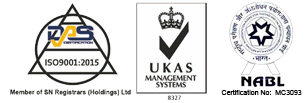MRS Brain
Magnetic resonance imaging (MRI) of the head is a noninvasive test that produces detailed images of your brain. An MRI machine creates the images using a magnetic field and radio waves. An MRI is different from a CT scan or an X-ray in that it doesn’t use radiation to produce images. An MRI can create images with different contrast of the various structures, and hence MRI is more effective than other scans at detecting abnormalities, for example in the pituitary gland and brain stem. A head MRI is a useful tool for detecting a number of brain conditions, including:
- infections
- tumors
- cysts
Preparation for MRI Head
The MRI technician should be informed if you have any inner ear implants, artificial joints, a defibrillator or pacemaker, particular types of heart valves, vascular stents, brain aneurysm clips. The staff will ask you to remove anything that contains metal, including jewelry, sunglasses or any electronic gadgets. All these interfere with the MRI machine’s ability to produce a clear image. Braces and dental fillings will typically not pose a problem, but pens, pins, and certain dental appliances can interfere. In the case of implants and pacemakers, those items can stop working properly due to an MRI’s magnetic field. You will be asked to wear a hospital gown or clothing that doesn’t contain metal fasteners.
Lastly if you’re pregnant, kindly inform the staff.
Procedure for MRI Head
During the exam, you will asked to stay still to obtain the clearest images. You will lie down on a table that slides into the MRI machine and a head coil will be placed around your head. The table will slide through a magnet and the technician will start the scan. The scanning will be loud in nature and these banging noises are normal with the machine. There is no need of worrying or fear. You can also ask for ear plug if noise is more than bearable limits. Children who have difficulty staying still may need intravenous or oral sedation. Sedation can also be helpful for adults who are claustrophobic.
The test normally takes 15 to 30 minutes.
There are no risks associated with the MRI itself. A radiologist will analyze your MRI images and your results will be available


